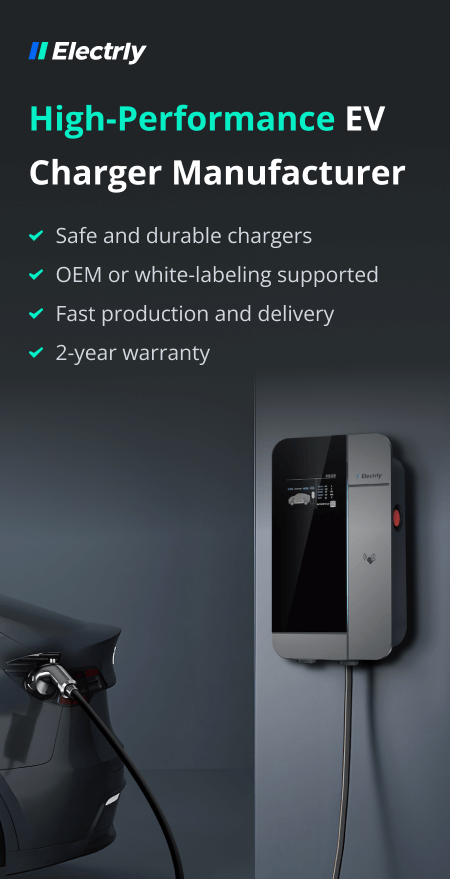With electric vehicles growing in popularity and fuel prices soaring in recent years, switching to electric could be a great way to save some money on your transportation costs. Just plug it in at home and recharge it overnight. You'll never have to visit a gas station again. But how much does it cost to charge an electric car? In this article, we'll dive into it and find out how expensive EV charging is.
Costs of Charging an Electric Car at Home
For the vast majority of people, charging at home will be the default way to top up their EVs. But to charge as quickly as possible while at home, you'll need a Level 2 charger installed. These costs vary depending on the model you choose, but you should budget at least $600. If you're buying a new vehicle, some manufacturers include a home charger within the purchase price.
Once your charger is installed, the cost to charge is whatever your household electricity price is. While this varies depending on where you live, the average retail cost per kWh in the U.S. is around 16 cents in 2023.
To determine how much it will cost you to charge, you'll need to multiply that kWh figure by the capacity of your electric vehicle's battery. For example, if you have a standard Tesla Model 3, that figure would be 60 kWh multiplied by your home kWh price. So on average, you'll pay roughly $10 to charge a Model 3 from 0 – 100%, which is rare as most EV owners won't use 100% of their battery.
Learn more: Home EV Charging Guide >>
Costs of Charging an Electric Car on a Road Trip
We've covered at-home charging, but what about when you're out on the road? Well, things can become quite a bit more expensive.
On average, the cost of charging from a commercial charger from nearly empty to full is between $20 and $40.
Commercial rates are often double and sometimes triple your home electricity rate. Charging speeds also affect how much you'll pay.
Level 1 chargers are slow and typically take 24 hours to charge your car. Great when parked overnight but not practical if you need a quick top-up.
Level 2 chargers add roughly 28 miles per hour, with the cost varying between $1 and $5 per hour. These chargers are good for taking a food break where you'll be parked somewhere for an hour or two.
Level 3 chargers are also known as DC fast chargers. Depending on your battery size, these are the fastest type and can charge your car from 0% to 80% in less than an hour. These cost between $10 and $30 per charge.
Price can also be time-dependent when using commercial chargers - the longer you’re plugged in the more you’ll be charged. More often than not, the fees charged are a combination of charge speed, session length in time and price per kWh.
So if you’re using one of the latest ultra-fast 360kW capable chargers, you’ll pay a premium price for charging at such high speed, as well as the amount of time you’re physically plugged in (so you don’t hog the charger) plus the price of each kW of electricity used.
Costs of Charging an EV with Solar Panels
Installing solar may be a cheap way to charge your electric vehicle, but you need to take the initial setup costs into account too.
You'll need solar panels, a solar charge controller, an inverter, and a charging station to get everything set up. Plus, a charge storage device is needed to really make the most of the system.
Once the system is installed, you're effectively locking in the price you pay per kWh to charge your EV. And with a 25-year lifespan, that's a lot of driving on cheap electricity.
If we take a cost per kWh of 16.6 cents for grid electricity and drive 13,500 miles a year, you'd spend around $670 on electricity. But a home solar setup can reduce that cost per kWh to 6 or 8 cents. This can be calculated by the number of panels and their efficiency to get a kWh per day and a year figure. Then divide that number by the cost of the system and 25 years.
Using the higher figure, driving the exact mileage, you'd only pay $325 annually for your energy.
Based on the above, over 25 years, you could save up to $14,000 in electric costs by using a home solar setup compared to the grid.
Are There Free EV Charging Stations?
When EVs first hit the market, there were quite a few free charging stations. But this number has dropped massively in recent years as more buyers choose to go electric.
You can, however, still find free chargers. Usually, they're located at malls, grocery stores, casinos, and hotels. There are even free chargers at some National Park locations.
There are also several handy apps and online tools to find chargers and discover which ones are free. For example, Plugshare allows you to filter by price and remove all chargers that require payment. ChargePoint and Electrly are other platforms that allow you to seek out free chargers near you.
Conclusion
Compared to gasoline-powered cars, the price of topping up your tank in an electric vehicle can vary greatly depending on where you decide to charge. While most EV owners charge their vehicles at home most of the time, it’s important to be aware that fast charging on the road, such as during a long journey or road trip, can come with high costs.

